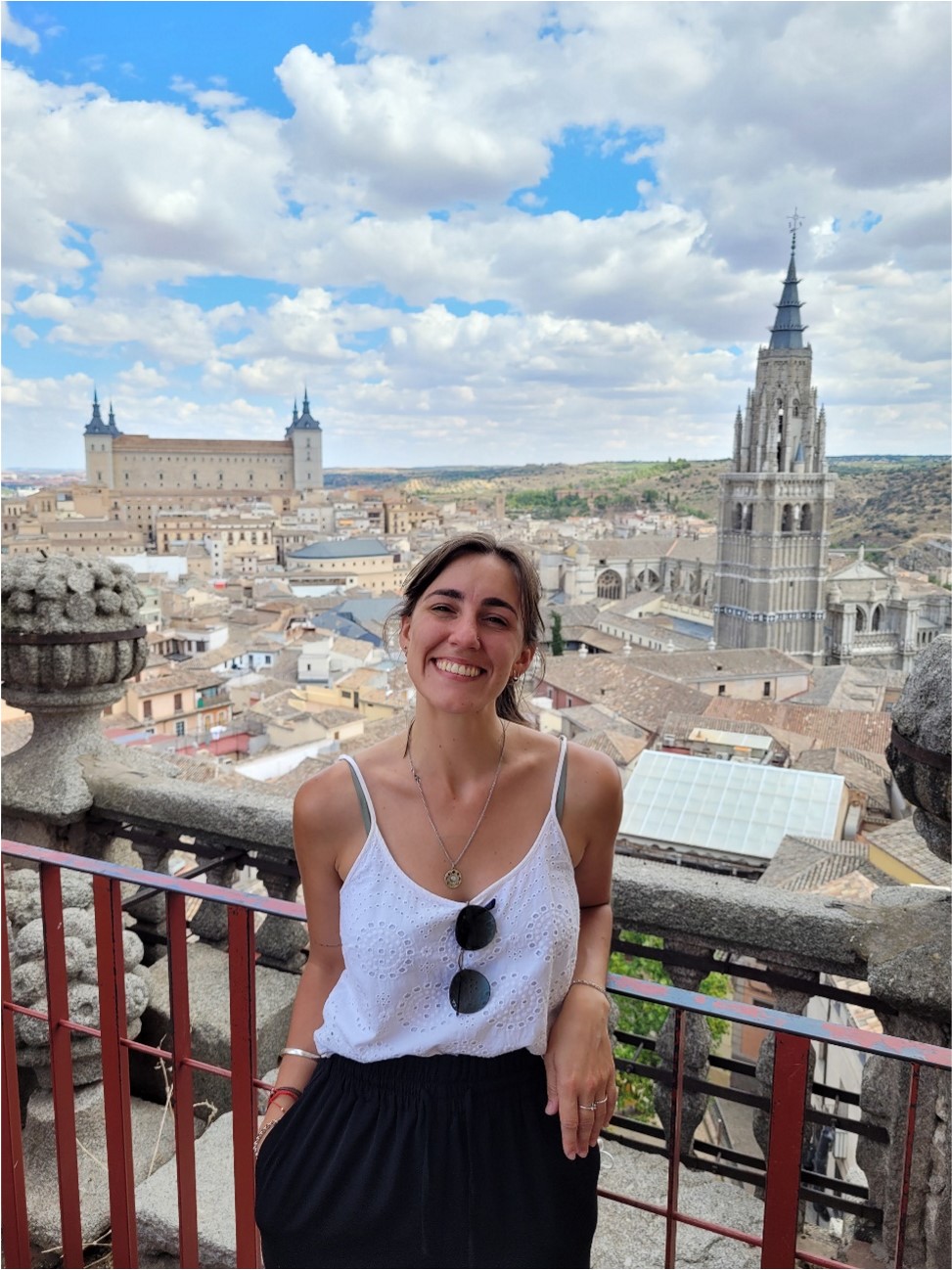Biography
I obtained my bachelor degree in Biotechnology at the National University of Rosario, Argentina. My bachelor thesis was based on the development of a cryopreservation methodology for mouse embryonic neural stem cells. After that, I spent a few months as intern at the E.E.A Rafaela, INTA in Argentina, learning about microbiology and molecular biology techniques, but feeling that my interest was truly focused on research in the health area, particularly in oncology. That led me to the Institut Pasteur of Montevideo, Uruguay, where I spent two years in a part-technical and part-research position, reinforcing my desire to do a PhD in oncology. Finally, and after great efforts, I get the opportunity to be part of this challenging fellowship, which for sure will let me grow not only at the professional but also at the personal level.
Spanish National Cancer Research Centre (CNIO), Epithelial Carcinogenesis Group, Madrid, Spain.
Supervisors: Dr. Francisco X. Real and Dr. Miriam Marqués
Secondments
Secondment 1: Study the utility of deep learning-based multi-source data integration to assess robust predictors to vitamin-D response
ESR 7 Project
Personalized approaches to modulate tumor behavior using vitamin D3
Bladder cancer is one of the most common malignancies in western world. In particular, muscle-invasive tumors associate significant cancer death rates with limited therapeutic options. Fibroblast growth factor receptor 3 (FGFR3) is the most common mutated oncogene and constitutes an actionable target in BC. Paradoxically, tumors harboring FGFR3 mutations displayed an improved prognosis.
The project is focused in bladder cancer and the continuous need of improving treatment strategies against it. The main aim of the project is to evaluate the potential beneficial effects of vitamin D in this regard. Epidemiologic and clinical studies demonstrated that vitamin D have an important role in the prevention of some pathologies, including cancer. In a collaborative study, our group has linked low plasma concentrations of calcidiol (indicator of a person´s vitamin D status) with an increased risk of developing low FGFR3-expressing muscle-invasive tumors. We have also shown that in vitro calcitriol (the active form of vitamin D) treatment of human bladder cancer cells induced growth arrest and an enhanced epithelial phenotype while increasing FGFR3 mRNA and protein levels.
Based on these evidences, we hypothesize that vitamin D treatment might ameliorate bladder cancer aggressiveness, probably through activating FGFR3 signaling. In addition, the effects of vitamin D on FGFR3 pathway might sensitize cancer cells to FGFR3 inhibitors. Consequently, we will first characterize the vitamin D signaling axis in bladder cancer cells and its effects on tumor phenotype. Also, we will assess the effects of vitamin D administration in combination with at least two anti-FGFR3 targeted therapies, in order to explore the potential benefits of their combination. Positive findings about the biological effects of vitamin D in this setting and considering that it is a natural compound, will allow us to think about a translation to the clinic.
Scientific Interests
- Cancer research
- Molecular and cellular biology
- Personalized medicine
General Interests
- Dancing
- Traveling
- Hiking




